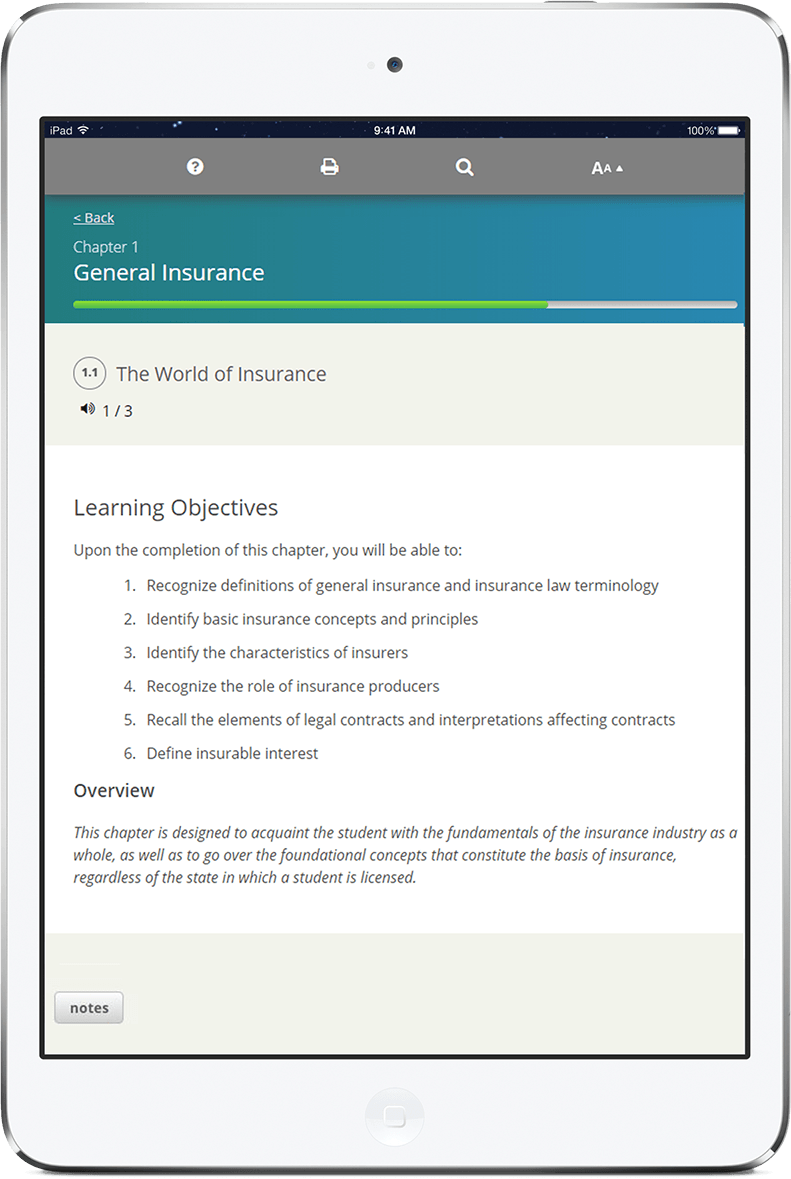What will I learn?
An independent insurance adjuster handles claims for property and casualty insurance losses. Property insurance is designed to protect against the
financial loss an individual or business suffers upon the damage to one's property, including the structure of a building or home and personal or
business content.
Casualty, or liability insurance, protects an individual or business against a legal liability, or obligation to pay a sum of money for damages to another person.
These types of losses are typically a result of negligence or unintentional harm, including bodily injury or property damage, to someone other than an insured.
A licensed insurance adjuster specializes in examining claims by interviewing witnesses, medical professionals, the police, and the person filing the claim to
gather information regarding the loss, accident, or injuries. The adjuster uses this information to approve or reject a claim or to negotiate settlements.
To become licensed as an insurance adjuster, you will need to demonstrate entry-level knowledge of the industry by passing a state licensing exam.
This course will deliver the content needed to successfully complete the education and examination requirements.

Testable topics include:
Homeowners and dwelling coverage, personal auto, personal umbrella, commercial property, commercial general liability, businessowner's
coverage, commercial auto, crime, surety, workers' compensation, farm insurance, and commercial umbrella coverage. Adjuster-specific information includes claims
investigations, handling disputes of coverage, accepting or denying a claim, and settlement negotiations. This course also provides an overview of general
insurance and contract concepts, basic insurance terminology, covered perils, the policy structure, conditions, exclusions, additional coverages, applicable
endorsements, policy limits, and state-specific regulations based on the state where you are applying for a license.